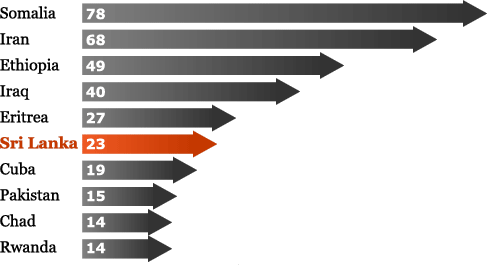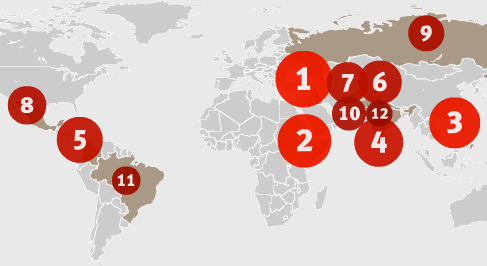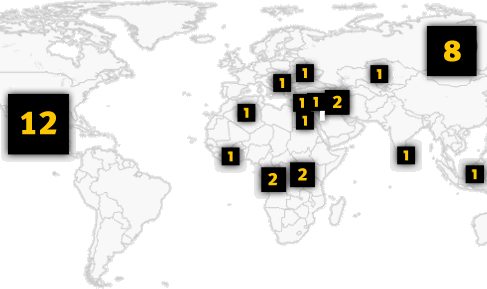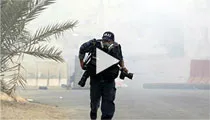Sri Lanka remained a highly restrictive and dangerous nation for the press. Critical or opposition journalists continued to face a climate of intense intimidation. More than 20 journalists have gone into exile in the last five years, one of the highest rates in the world. Work-related murders have declined since 2009, but the slayings of nine journalists have gone unsolved over the last decade, one of the worst records of impunity in the world. The government moved aggressively to obstruct the flow of information. In July, the Ministry of Media and Information blocked efforts to introduce freedom of information legislation before parliament, saying national security would be threatened if citizens were given access to public documents. The government had barred previous right-to-information efforts, including one in 2011. In June, police raided the offices of two opposition news websites, arresting staff members and confiscating equipment. At least five other critical websites were blocked. And in March, the authorities told all news organizations they must obtain prior official approval before issuing any text or SMS news alerts that carried information about the military or police.
Sri Lanka
» Government aggressively censors outlets, blocks information.
» Critical, opposition journalists face threats, severe intimidation.
Sri Lanka remained a highly restrictive and dangerous nation for the press. Critical or opposition journalists continued to face a climate of intense intimidation. More than 20 journalists have gone into exile in the last five years, one of the highest rates in the world. Work-related murders have declined since 2009, but the slayings of nine journalists have gone unsolved over the last decade, one of the worst records of impunity in the world. The government moved aggressively to obstruct the flow of information. In July, the Ministry of Media and Information blocked efforts to introduce freedom of information legislation before parliament, saying national security would be threatened if citizens were given access to public documents. The government had barred previous right-to-information efforts, including one in 2011. In June, police raided the offices of two opposition news websites, arresting staff members and confiscating equipment. At least five other critical websites were blocked. And in March, the authorities told all news organizations they must obtain prior official approval before issuing any text or SMS news alerts that carried information about the military or police.
Facing persistent threats, numerous journalists have fled the country, with few daring to return. Some exiled journalists establish offshore news websites or continue anti-government activism.

Mahinda Rajapaksa's government has failed to prosecute any perpetrators in the nine murders that have taken place during his time in power, first as prime minister and then president. All of the victims reported on politically sensitive issues. CPJ's Impunity Index, which calculates unsolved journalist murders as a percentage of each country's population, identified Sri Lanka as having one of the world's worst records in combating deadly anti-press violence.

| 1. Iraq 2. Somalia 3. Philippines 4. Sri Lanka | 5. Colombia 6. Nepal 7. Afghanistan 8. Mexico | 9. Russia 10. Pakistan 11. Brazil 12. India |
CPJ data show work-related murders have subsided in recent years. But government critics continued to receive threats concerning their work, highlighting the country's ongoing anti-press climate.
Prageeth Eknelygoda, an opposition cartoonist and columnist, remained unaccounted for after vanishing in January 2010. The authorities have shown no evidence that they are working to solve the case, despite the tireless efforts of Eknelygoda's wife, Sandhya.

| Mexico: 12 Russia: 8 Iraq: 2 Rwanda: 2 Democratic Republic of Congo: 2 | Syria: 1 Sri Lanka: 1 Ukraine: 1 Kazakhstan: 1 Indonesia: 1 | Ivory Coast: 1 Egypt: 1 Serbia and Montenegro: 1 Algeria: 1 Lebanon: 1 |

